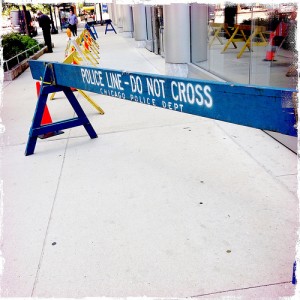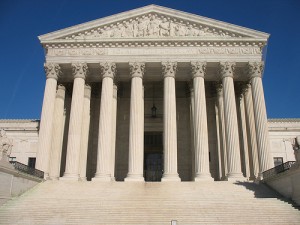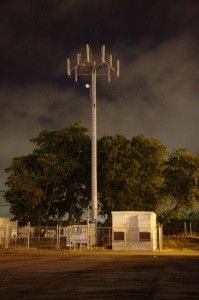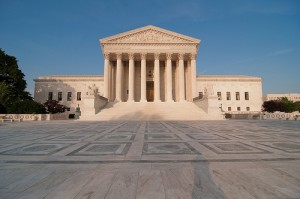Posted
08 Jan 2014 in Case Notes, IMLA Briefs
Local governments often establish fixed buffer zones to eliminate congestion and to ensure public safety. Does the First Amendment require a significant change in current local practices?

Next Wednesday, January 15th, the Supreme Court will hear arguments in a case that could address that question.
McCullen v. Coakley, No. 12-1168 concerns whether a Massachusetts law that bars entering or remaining within a 35-foot radius of a reproductive-health-care facility violates the First Amendment. The First Circuit
upheld the law as a reasonable, content-neutral limit.
Local governments have filed two important amicus curiae briefs in the case.
First, IMLA joined the National League of Cities, National Association of Counties, the International City/County Management Association, and the U.S. Conference of Mayors in a
brief urging the Court to respect state and local governments' need to establish buffer zones to protect public safety. The brief offers a number of examples
 We know that now—after decades of uncertainty—because the Supreme Court said so in District of Columbia v. Heller, 554 U.S. 570 (2008).
But how far does the Second Amendment extend? Does it prevent a City from regulating the storage of handguns in homes or the sale of ammunition that expands upon impact, referrred to as hollow-point bullets?
In a case decided this week, Jackson v. City and County of San Francisco, No. 12-17803 (Mar. 25, 2014), the Ninth Circuit ruled that those bringing a Second-Amendment challenge to the City and County of San Francisco's handgun and ammunition regulations were not likely to succeed on the merits.
What exactly was at issue and how did the court reach its conclusions?
We know that now—after decades of uncertainty—because the Supreme Court said so in District of Columbia v. Heller, 554 U.S. 570 (2008).
But how far does the Second Amendment extend? Does it prevent a City from regulating the storage of handguns in homes or the sale of ammunition that expands upon impact, referrred to as hollow-point bullets?
In a case decided this week, Jackson v. City and County of San Francisco, No. 12-17803 (Mar. 25, 2014), the Ninth Circuit ruled that those bringing a Second-Amendment challenge to the City and County of San Francisco's handgun and ammunition regulations were not likely to succeed on the merits.
What exactly was at issue and how did the court reach its conclusions?










